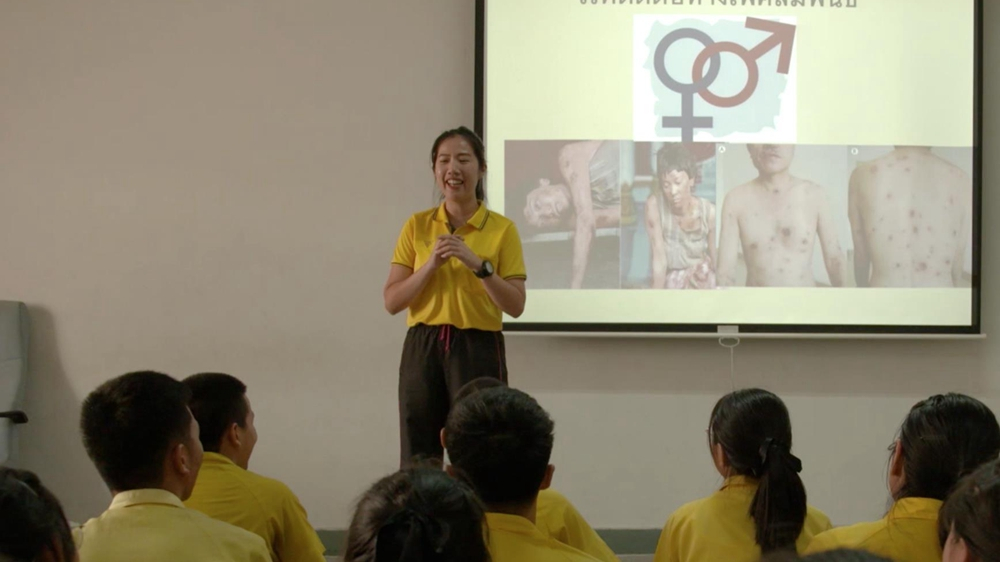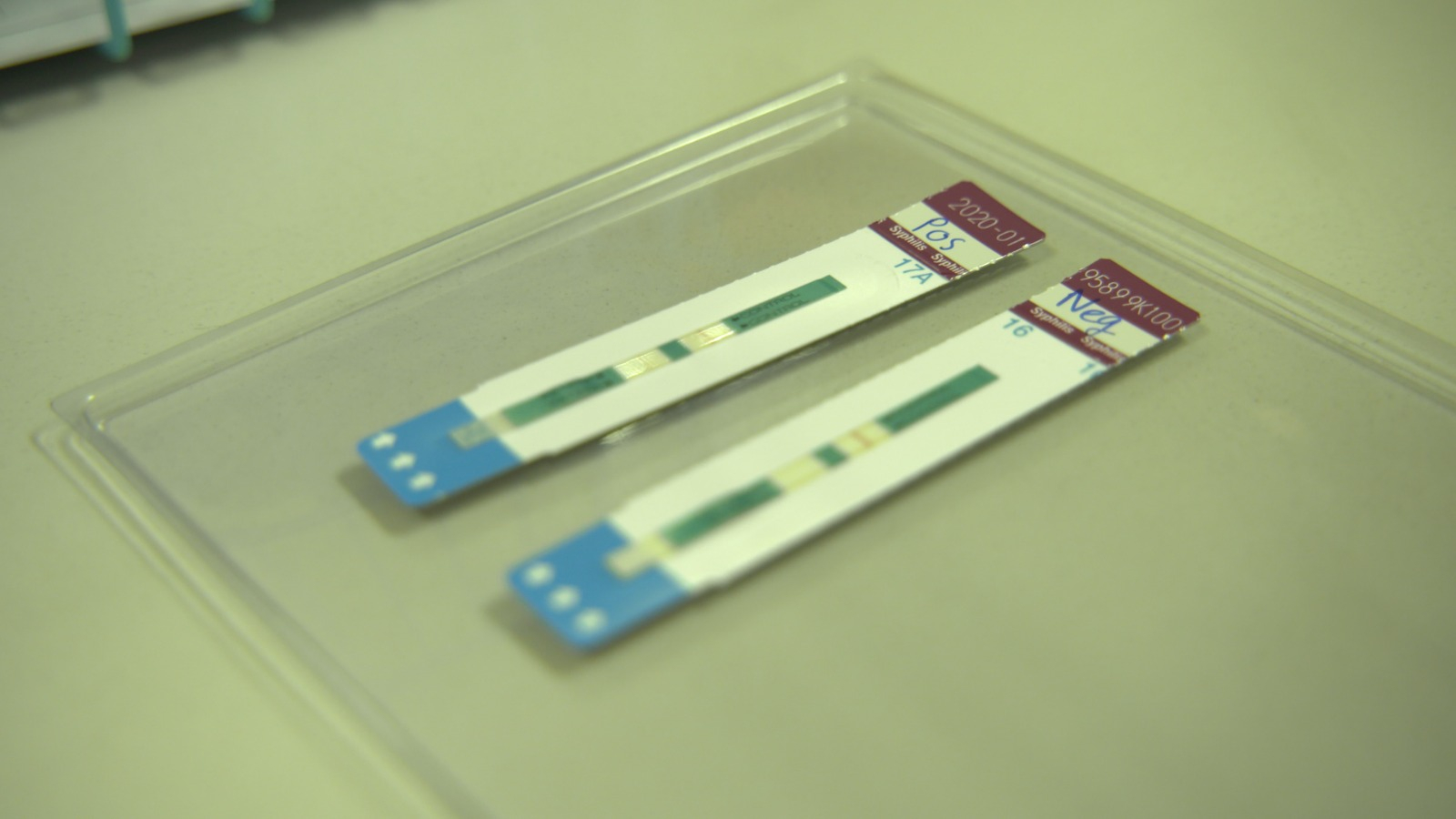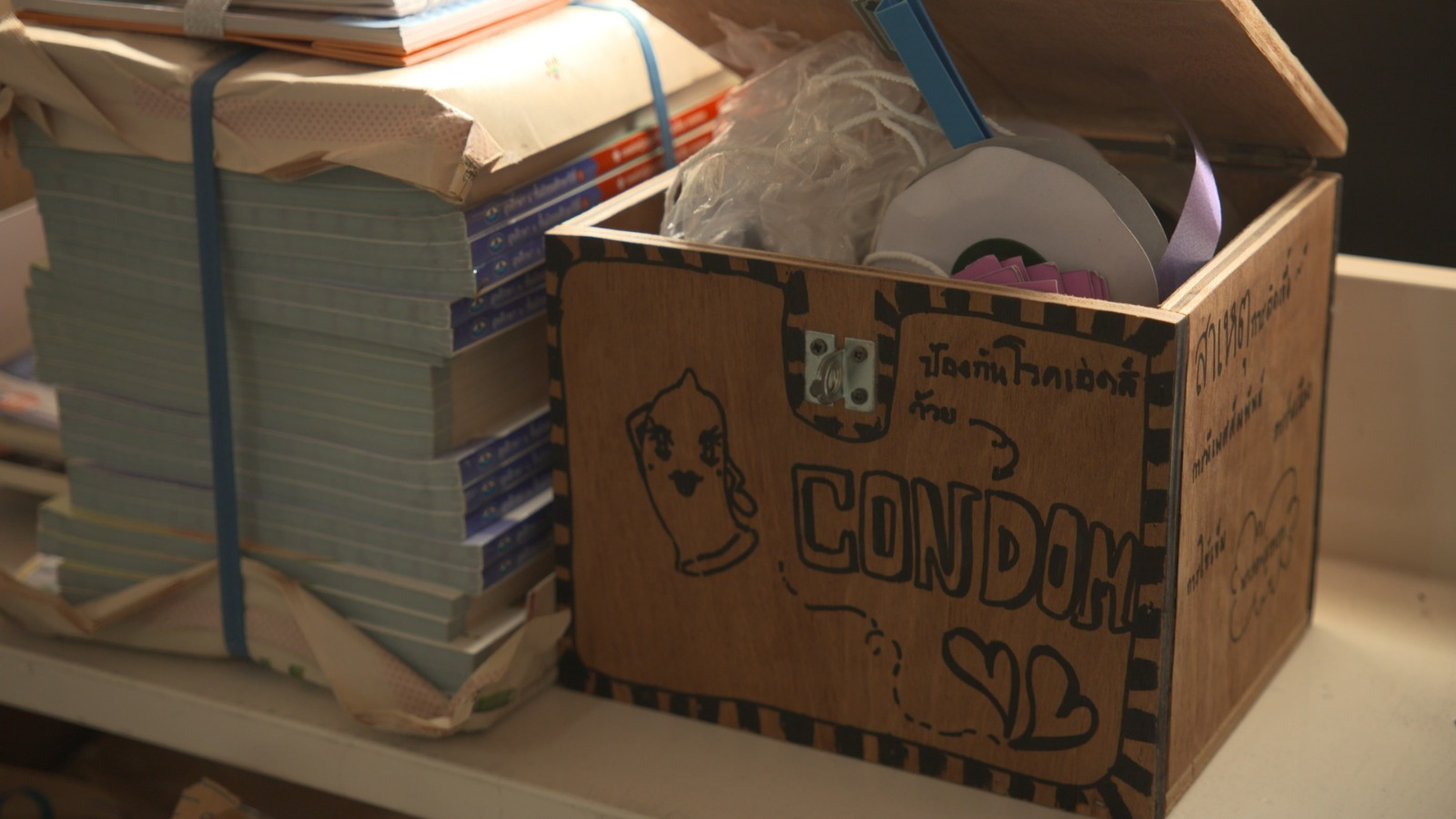
Asia Pacific
15:49, 24-May-2019
Resurgent syphilis cases in Thailand highlight need for public health education
Dusita Saokaew

Syphilis has become a serious public health concern in Thailand. An alarming rise in syphilis cases in the country underscores the need for a public health education campaign. But it's a topic rarely discussed freely in Thailand, where sexual dialogue is received with embarrassment, mockery or laughter in sex education classes.
According to the Thai Health Ministry, the average age of the first sexual encounter of Thais has fallen to 13-15 years old. Fifty percent report to have not used a condom. Teens are becoming complacent about sexually transmitted infections. Syphilis in Thailand has now reached alarming rates and about 37 percent of new infections recorded last year were found among those aged between 15 to 24.

Syphilis screen tests: If a first screening test shows signs of syphilis, another test is done to confirm a syphilis infection. /CGTN Photo
Syphilis screen tests: If a first screening test shows signs of syphilis, another test is done to confirm a syphilis infection. /CGTN Photo
We asked a group of 18-year-old students what they knew about syphilis and were met with shaking heads, faces of confusion and blank stares.
They can be forgiven for not knowing much about syphilis. It is, after all, considered to be a practically ancient ailment. But its incidence has been rising almost every year for the past 10 years in Thailand from two to three cases to now 12 people out of 100,000 who have been infected. That's almost a 300-percent increase.
Unfortunately, this trend is also seen around the world. Cases in Japan have hit a 50-year high. Western Europe saw increases of over 50 percent in new cases, while the U.S. saw a 73 percent increase of infection rates from 2013 to 2017.
Rossaphorn Kittiyaowamarn, a medical doctor at Bangrak STIs Clinic in Bangkok, believes that this is because “having sexual relationships now is a lot easier.” In a conservative country like Thailand, she continues, “people used to go and pay for sexual services. Now, society has changed and encounters can happen everywhere and are becoming more casual.”

Condoms help in stopping the transmission of syphilis by preventing contact with a sore. /CGTN Photo
Condoms help in stopping the transmission of syphilis by preventing contact with a sore. /CGTN Photo
The disease is curable with antibiotics, but it's a bit of a secret agent, transmissible through almost all sexual means and erupting as a tiny lesion about a month after exposure. At various stages of the infection, it might cause no symptoms or a puzzling array of them. If gone undiagnosed, it can cause everything from disfigurement to seizures.
Mond* happens to be one of the unlucky ones. He came to Bangrak STI Clinic in Bangkok as rashes started to appear. His tests came back positive for syphilis, a disease he knew nothing about. “I've never heard about this disease. I only just found out about this on the posters on the wall while I was waiting for the doctor.”
But that is essentially the problem. Today, syphilis has somewhat been forgotten. And that is what makes it so dangerous. Because after all, it hasn't disappeared. London today, Tokyo or Bangkok tomorrow and a different bedmate at each stopover. And with that, the chance of getting infected with syphilis increases as containment becomes virtually impossible.
*Name has been changed to protect identity
(Cover: Better sex education, frequent health checks and an increased public awareness about the importance of condoms will help prevent the spread of syphilis. /CGTN Photo)

SITEMAP
Copyright © 2018 CGTN. Beijing ICP prepared NO.16065310-3
Copyright © 2018 CGTN. Beijing ICP prepared NO.16065310-3